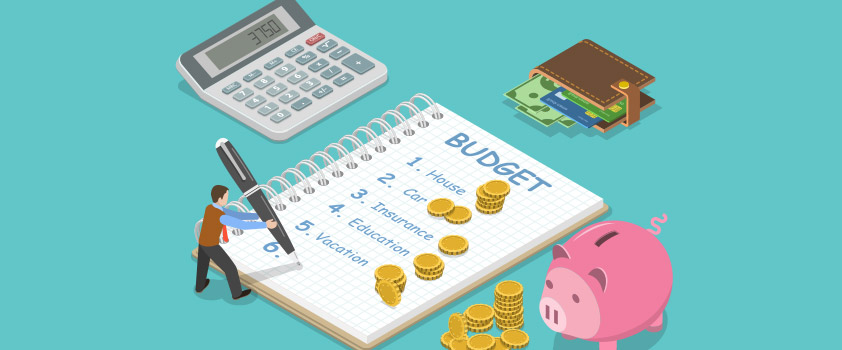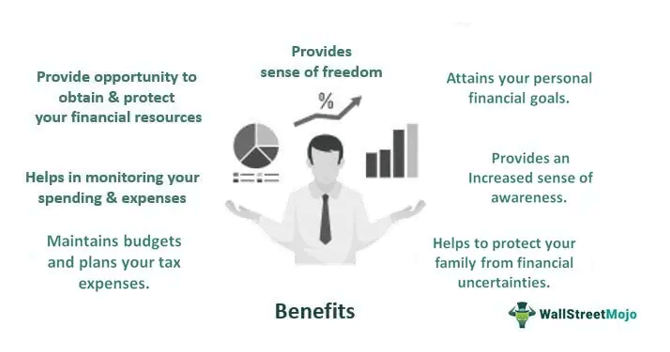Introduction
Life is unpredictable, and no matter how much we plan, unexpected expenses can always pop up. Whether it’s a car breakdown, medical emergency, or job loss, these unforeseen events can quickly throw your financial plans off track. That’s why it’s crucial to budget for unexpected expenses in your personal finances. In this article, we’ll discuss how to create a budget that includes unexpected expenses and why it’s important to have an emergency fund.
Why You Need an Emergency Fund
An emergency fund is a crucial part of any personal finance plan. It’s a savings account that you set aside for unexpected expenses, such as a medical emergency, car repairs, or a job loss. Having an emergency fund can give you peace of mind, knowing that you have money set aside for unexpected expenses. It can also help you avoid going into debt when these unexpected expenses arise.
How Much Should You Save in Your Emergency Fund?
The amount you need to save in your emergency fund will depend on your individual circumstances. As a general rule, you should aim to save at least three to six months’ worth of living expenses in your emergency fund. If you have dependents or a high-risk job, you may want to save more. It’s also important to reassess your emergency fund regularly and adjust it as needed based on your current financial situation.
How to Budget for Unexpected Expenses
To budget for unexpected expenses, you need to first determine how much money you have coming in and going out each month. This involves creating a budget that tracks your income and expenses. When creating your budget, make sure to include a category for unexpected expenses.
When budgeting for unexpected expenses, it’s important to be realistic. Look at your past spending patterns to get an idea of how much you typically spend on unexpected expenses. You can also use online resources to get an idea of the average cost of common unexpected expenses, such as car repairs or medical bills.
Once you have a realistic estimate of how much you need to budget for unexpected expenses, make sure to include this amount in your monthly budget. You can either create a separate category for unexpected expenses or include it in your miscellaneous or discretionary spending category.
Tips for Managing Unexpected Expenses
In addition to budgeting for unexpected expenses, there are other steps you can take to manage them effectively:
Prioritize Your Expenses – When unexpected expenses arise, prioritize your expenses to ensure that you cover the most important ones first, such as housing, food, and utilities.
Cut Back on Discretionary Spending – If you need to free up money to cover unexpected expenses, consider cutting back on discretionary spending, such as eating out or entertainment.
Negotiate with Service Providers – If you’re facing unexpected expenses, don’t be afraid to negotiate with service providers, such as medical providers or car repair shops, to try and lower your costs.
Use Credit Wisely – If you need to use credit to cover unexpected expenses, make sure to use it wisely. Only borrow what you can afford to pay back, and look for low-interest options.
Conclusion
Budgeting for unexpected expenses is an essential part of any personal finance plan. By creating an emergency fund and including a category for unexpected expenses in your monthly budget, you can easily accommodate unexpected expenses by setting aside a portion of your income each month.
Use Credit Cards Responsibly
Credit cards can be a useful tool when used responsibly, but they can also lead to debt if not managed properly. To avoid overspending and accruing high-interest debt, set a budget for your credit card expenses and pay off your balance in full each month.
Build an Emergency Fund
No matter how carefully you budget, unexpected expenses can still arise. That’s why it’s important to build an emergency fund that can cover at least three to six months’ worth of living expenses. This will help you avoid dipping into your savings or going into debt when an unexpected expense arises.
Consider Insurance
Insurance can provide financial protection in the event of unexpected expenses, such as a medical emergency or home repair. Evaluate your insurance needs and consider purchasing policies that can provide the coverage you need.
Review and Adjust Your Budget Regularly
Your financial situation can change over time, so it’s important to regularly review and adjust your budget as needed. This can help you stay on track and ensure that your budget aligns with your current income, expenses, and financial goals.
In conclusion, unexpected expenses are a fact of life, but with a solid budget and a few strategies in place, you can avoid financial stress and maintain control of your finances. By planning ahead, using credit cards responsibly, building an emergency fund, considering insurance, and regularly reviewing and adjusting your budget, you can be well prepared for unexpected expenses and achieve financial peace of mind.





